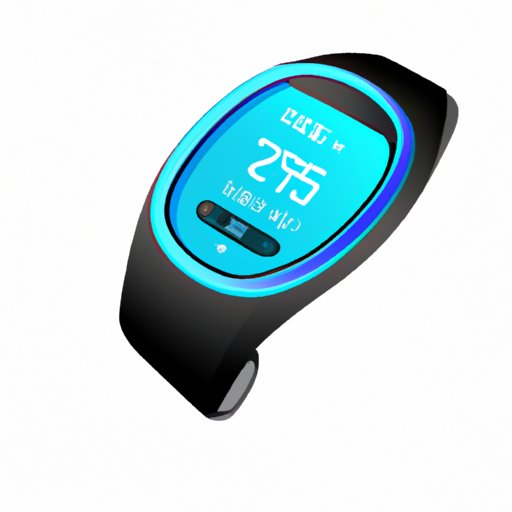
Introduction
Staying motivated and achieving our fitness goals can be a struggle for many of us. Fortunately, technology has made it easier than ever to track our progress. One such tool that has gained popularity in recent years is the pedometer. This small, wearable device can track our steps, distance traveled, and calories burned, providing us with valuable insights into our fitness routines. In this article, we’ll take a closer look at how pedometers can help us reach our fitness goals.
A Beginner’s Guide to Using a Pedometer for Fitness
A pedometer is a small device worn on the waistband that tracks the number of steps taken. Most pedometers also measure how far you’ve walked or run and how many calories have been burned. The benefits of using a pedometer are numerous. Studies have shown that using a pedometer can motivate people to increase their physical activity, leading to improved overall health. To use a pedometer effectively, it’s important to set realistic goals. Whether it’s aiming for a certain number of steps per day or increasing your activity level gradually, setting achievable goals is key to staying motivated.
How to Choose the Right Pedometer for Your Fitness Needs
There are various types of pedometers available in the market, ranging from basic models to more advanced ones that can track heart rate or sync with a smartphone. Deciding which one is best for you depends on your fitness goals and lifestyle. Basic pedometers are inexpensive and can do a good job of tracking steps and distance, while more advanced models come with additional features and are often pricier. It’s important to choose a pedometer that works for your needs and fits within your budget.
How Combining a Pedometer with Other Fitness Trackers Can Help You Stay Motivated
In addition to pedometers, other fitness trackers like heart rate monitors or GPS devices can help us keep track of our fitness routines and stay motivated. By combining a pedometer with other fitness tools, we can get a complete picture of our activity level and progress. For example, a heart rate monitor can help us monitor our intensity level during workouts and adjust our workouts accordingly, while a GPS device can help us track our path and distance traveled during outdoor activities.
The Science Behind Pedometers
Pedometers use a mechanism called an accelerometer to measure movement. The device detects motion and records a step every time it senses a jolt. The data recorded by a pedometer can help us estimate our calorie burn, steps taken, and distance traveled. Most pedometers require calibration to ensure they are providing accurate readings. It’s important to follow the manufacturer’s instructions on how to calibrate your pedometer.
Success Stories: Real People Share Their Journey to Fitness Using Pedometers
Incorporating a pedometer into your fitness routine can be a great way to stay on track and achieve your goals. Real people have shared their success stories, where using a pedometer has helped them achieve significant weight loss and improve their overall health. These success stories can be inspirational and motivating for anyone looking to get started on a fitness journey or improve their existing routine.
Conclusion
In conclusion, a pedometer is a useful tool for anyone looking to improve their fitness level. By tracking our steps, distance, and calories burned, we can get important insights into our activity level and progress toward our fitness goals. Whether it’s simple step counting or more advanced tracking of heart rate and GPS, there is a pedometer out there to fit our needs.





